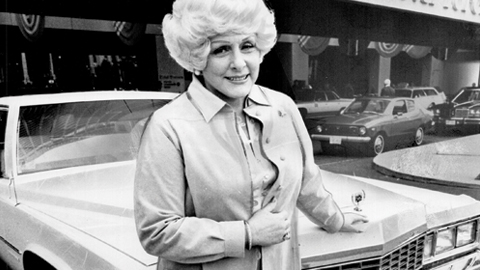Coco Zhang, Vice President of Mary Kay China, tells how her life story drives her career. Brunswick’s Dr Lu Jianzhong and Baijia Liu report
Business leaders rarely talk candidly about their personal lives. But Coco Zhang Jing, Mary Kay China’s Vice President of External Affairs, doesn’t hesitate to begin a speech to a room full of young professionals with a story of personal heartbreak.
At 25, on the path to marriage, she almost quit her job as a secretary to focus on supporting her future husband and his career. Instead, she was blindsided by his decision to break up with her. Deeply wounded, Coco realized she couldn’t afford to sell herself short. She had a choice: idealize someone else’s success or take control of her own. In a recent TED Talk, Zhang said, “Your attitude in these specific moments determines who you will eventually be.” She chose self-determination and it became the foundation for her growth and success as a business leader.
Born near the end of the Cultural Revolution – a decade from 1966 to ’76, when government-led policies kept much of the society in a state of upheaval – Zhang came of age during the unprecedented socio-economic recovery of the subsequent era. Retaining a strong loyalty to Chinese culture, hers was one of the first generation of Chinese executives with international vision and experience.
Zhang joined Mary Kay’s logistics department, moving away from her hometown for the first time. On her first day on the job, she wrote down everything her manager told her and carried that piece of paper with her for a year, referring to it regularly until she had it memorized. Today, she is a crucial member of the company’s leadership and, among her other responsibilities, is the architect of its award-winning corporate social responsibility programs.
The members of Zhang’s generation share an outlook marked by equal measures of tenacity, empathy and a drive to succeed. The Chinese expression chi ku (“吃苦”) – “eat bitterness” – defines their attitude: they are survivors, set to persevere through adversity. In our interview, Zhang says that if you are willing to “eat enough bitterness,” you will be able to overcome challenges.
While working toward her individual success, Coco also learned to take pride in her role as part of a collective. Success, she says, must be shared. Every day, walking the halls of the Shanghai headquarters, Coco says, she is reminded of the hundreds of thousands of women across China whom Mary Kay employs and provides with opportunities. Her goal now, Coco says, is to “be a role model and a mentor,” showing women how they can be influential within and beyond the organization.

